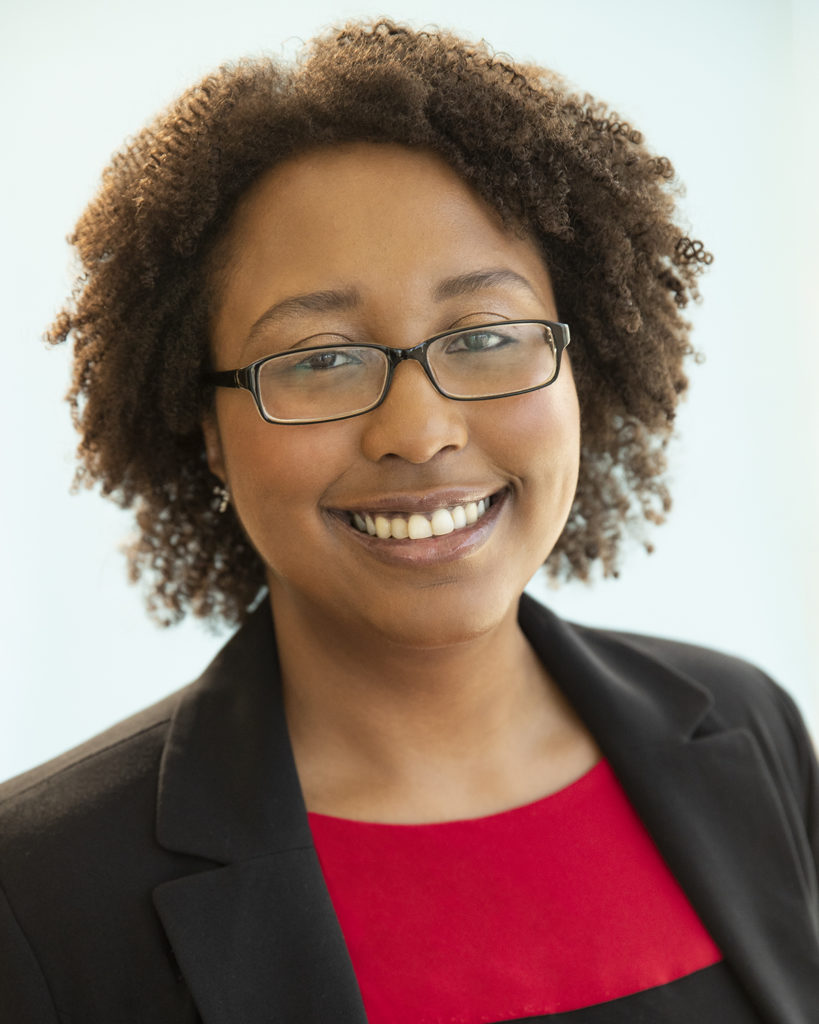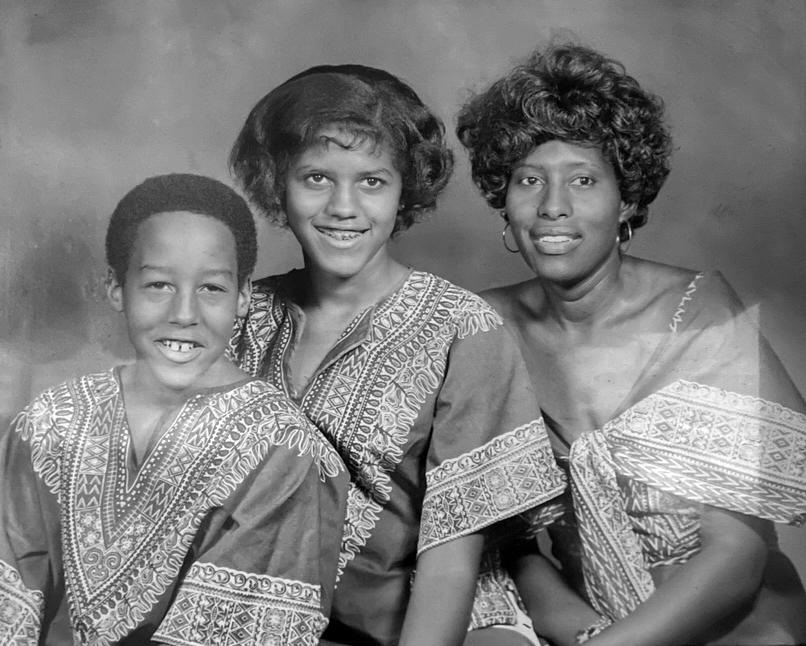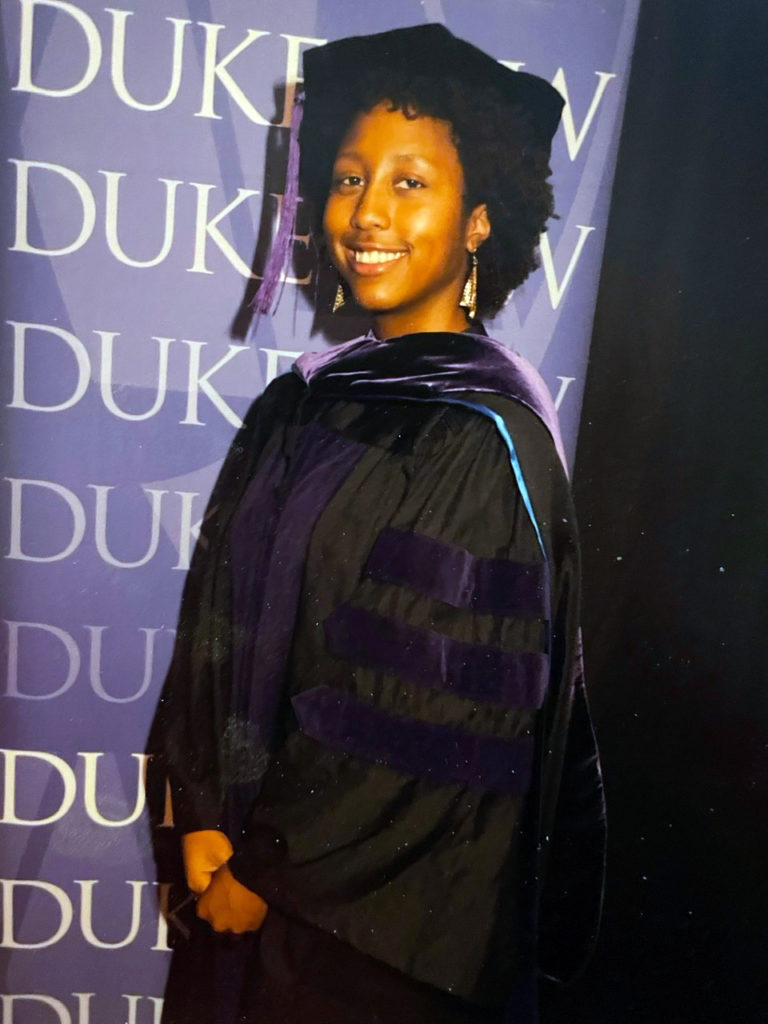This year’s Black History Month has been difficult for me.
Predominantly Black universities have received bomb threats this month, resulting in campus closures and disrupting students’ ability to receive their education. The nominee to the Supreme Court to replace Justice Breyer, even before she was named, had already been deemed unqualified by President Biden’s opponents solely because Biden said he would nominate a Black woman. And the Supreme Court announced that it would hear two cases against Harvard and the University of North Carolina that likely signal the end of meager affirmative-action efforts taken by so-called elite universities to increase their low levels of Black enrollment.

I feel as though certain parts of the country are telling me that Black people’s educational achievement, regardless of the source, is not worthy of protection, support, or prestige. At 32 years old, I cannot believe we are still debating the value of Black people’s intelligence.
Many assumptions animate the backlash to Black people’s audacity to be highly educated. The one that really angers me is the suggestion that Black families do not value education as highly as other families. As a result, the theory goes, Black children are destined to fail when admitted to prestigious (aka predominantly white) schools. I always roll my eyes at this one. I have never known a Black child who was not ashamed to bring bad grades home. Also, I did just fine at the two predominantly white schools that I attended — Harvard and Duke Law.
No one will believe me, but I had no desire to go to Harvard until my senior year of high school. My high school had a college night that I attended every year. I didn’t have a specific school in mind— I was just excited to see all the options. As a freshman, I met with alumni from Johns Hopkins, Spelman, Rice and Xavier.
I was making my rounds and entered the classroom for Harvard. I’ve always remembered how the Harvard alum, a man in a bow tie, looked at me. I recognized that look. I saw it at the beginning of every school year, before the first grades were given and before the teachers learned who I was. The look that said, “Why are you here?”
Contrary to racist expectations, I come from a well-educated family, with many in my family attending prominent HBCUs, historically Black colleges and universities. My maternal grandparents attended Wylie College in East Texas, not far from my mother’s birthplace in Longview. My mother left Longview to attend Prairie View A&M, just outside of Houston. Despite attending segregated schools until 1969, my father left Como, a rural town in northern Mississippi, to attend Fisk University in Nashville. Both of my parents pursued advanced degrees. My mother received her master’s and my father his Ph.D. from my hometown’s Texas Southern University.

Chelsea’s uncle, mother and grandmother
When I say my family is well-educated, I do not only refer to their degrees. All of these people, my grandparents and my parents, became educators themselves. Both of my grandparents became teachers who taught until retirement—when I lived with them as a child, my grandmother taught elementary school, and my grandfather was a middle-school principal. My mother and father taught in Houston’s public middle schools before I was born, and my father became a professor at Fisk University when I was a child.
Knowing what I know now, I can attribute most of my educational success to being raised by multiple generations of teachers who expected me to go to college as they had. In other words, I am here because of my Blackness, not in spite of it.
My grandparents encouraged me to read in my spare time, and I excelled at school from an early age. My mother could not afford private school, but she knew which neighborhoods zoned into Houston’s best public schools with advanced classes. When I visited my father during the summer, I attended Fisk Mini College, a summer day camp where I learned about Black history, music, and dance. As a result, I grew up with the full expectation that not only would I go to college, but I also believed that there was no school out of my reach. Because I was applying for college in 2007, and not 1957 or 1977, I had more options, including Harvard.
Even at this juncture, I was still not sure that I wanted to go to Harvard. There was a smaller liberal arts college that also interested me. Although it too was ranked highly by US News, my parents were underwhelmed. They understood something that I did not. Harvard was not only a place to get a high-quality education. Many schools provide that. But for my parents and much of the world, a Harvard education represents wealth, prestige, and guaranteed success. Thanks to my parents’ and peers’ encouragement, and my own curiosity, I chose Harvard.
When it came to law school admissions, I adopted my parents’ cynicism. My research into the legal profession made it clear that prestige was everything. Every insider book or blog tells law school applicants to aim for the highest ranked schools in their desired geographic region. Big Law firms and federal judges openly brag about hiring from only the most selective schools for their high-paying jobs and prestigious clerkships. Unsurprisingly, the most prestigious law schools are all PWIs, predominantly white institutions.

Duke Law, a PWI with a 7% Black population, is ranked 10th, while Howard Law, an HBCU with an 80% Black population, is ranked 91st. The disparity in ranking is reflected in employment statistics. A much larger percentage of Duke students work at Biglaw firms and clerk for federal judges than Howard students.
When the legal profession complains about a pipeline problem, one has to wonder if instead we have a reservoir problem. As long as firms and judges limit their searches to predominantly white institutions they will never find the wealth of Black talent existing at other schools.
In response to the news that President Biden nominated the first Black woman to the Supreme Court, recently hired Georgetown Law School administrator Ilya Shapiro had already deemed this nominee as a “lesser Black woman,” stating that it was “fitting that the court takes up affirmative action next term.”
There it is, that college night look from that Harvard alum put into words. For these people, some of whom hold prominent positions in the legal community, Black talent will never be worthy of high-status schools like Harvard, and therefore never be worthy of the Supreme Court’s prestige and power.
If the miniscule efforts at affirmative action are struck down by the court as expected, I predict that Black students whose parents can’t afford private school or don’t live in the “right” neighborhoods will once again have a harder time getting into predominantly white institutions. The legal profession will once again complain about a “pipeline problem.” But Black talent will not disappear. We will continue to pursue education at the schools that educated our ancestors. If the legal profession continues to ignore HBCUs, it will have no basis to complain about its embarrassingly low rate of Black attorneys.
Chelsea Glover is an employment attorney at the Dallas office of Carrington Coleman. Her practice focuses on a wide range of workplace issues, including human resources, discrimination and immigration.
